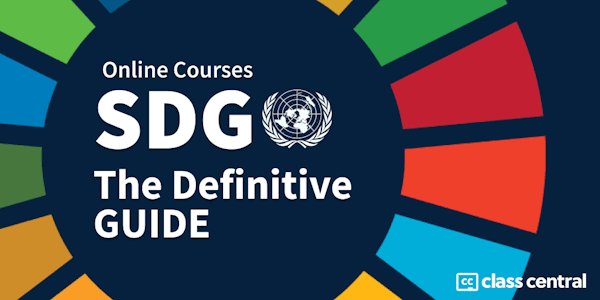Overview
In this specialization you will learn how to create societal impact through Social Entrepreneurship. Social Entrepreneurship describes the discovery and sustainable exploitation of opportunities to create social change. We will introduce you to examples of Social Entrepreneurship and guide you through the process of establishing a venture to address a social or environment problem. You will form of team and study a problematic issue to learn more about the source of the problem. We will equip you with frameworks identifying opportunities, support your team, and outlining your idea. You will develop your idea and iterate on your business model throughout the Specialization, and conclude with completing a business plan.
Syllabus
Course 1: Identifying Social Entrepreneurship Opportunities
- Offered by Copenhagen Business School. This Course will clarify the definition and meaning of Social Entrepreneurship and will focus on the ... Enroll for free.
Course 2: Social Business Model and Planning for Social Innovation
- Offered by Copenhagen Business School. In this course we will take the social business opportunity that you have identified in the first ... Enroll for free.
Course 3: Unleashing the Impact of your Social Enterprise
- Offered by Copenhagen Business School. In Course 3 of this Specialization you will first of all learn about Social Impact Assessment. Hence ... Enroll for free.
- Offered by Copenhagen Business School. This Course will clarify the definition and meaning of Social Entrepreneurship and will focus on the ... Enroll for free.
Course 2: Social Business Model and Planning for Social Innovation
- Offered by Copenhagen Business School. In this course we will take the social business opportunity that you have identified in the first ... Enroll for free.
Course 3: Unleashing the Impact of your Social Enterprise
- Offered by Copenhagen Business School. In Course 3 of this Specialization you will first of all learn about Social Impact Assessment. Hence ... Enroll for free.
Courses
-
This Course will clarify the definition and meaning of Social Entrepreneurship and will focus on the need to learn about the source and root of a social problem. You will be introduced to different perspectives about Social Entrepreneurship and you will learn about complementary and opportunistic assets which will help you to detect an opportunity and develop an idea of how to create a business for social change. From a practical perspective you will be asked to initiate a team formation process and start to think about a problem topic that you want to address with your social venture in the future. You will work in a team to research this topic and will gradually start to think about a particular opportunity and identify a purpose for your social venture project.
-
In this course we will take the social business opportunity that you have identified in the first course to a higher level. Specifically, you will develop a business model using the Business Model Canvas. Gradually you will also start writing your business plan. Moreover, you will be able to assess different organizational forms and select the one that is appropriate for your developed business model. By the end of the course you will be able to compare different social impact investment methods and choose the right funding strategy for your social venture. Note: It is highly recommended to have completed Course 1: 'Identifying Social Entrepreneurship Opportunities' before you start with this Course!
-
In Course 3 of this Specialization you will first of all learn about Social Impact Assessment. Hence you will be able to develop a method to evaluate the social mission that you achieve while implementing your business plan. Next you will outline an appropriate communication strategy for your social enterprise and will demonstrate how to market your products and services to beneficiaries and other customers. Here you will employ an adaptable communication strategy as you move from early adopters to a broader market share. Furthermore you will determine growth strategies and how you can scale or replicate your business plan internationally in order to reach a larger number of beneficiaries. In particular you will discuss organic growth, social franchising, and an open source approach. Finally, you will evaluate exit strategies. Thus you will review options social enterprises have when they need to finance their growth but the original funders can not or do not want to finance the expansion. Course 3 will be completed by your Capstone project, which will ask you to submit the final business plan of your social venture. Note: It is highly recommended to have completed Course 1 & 2 of the Social Entrepreneurship Specialization before starting this Course!
Taught by
Kai Hockerts




